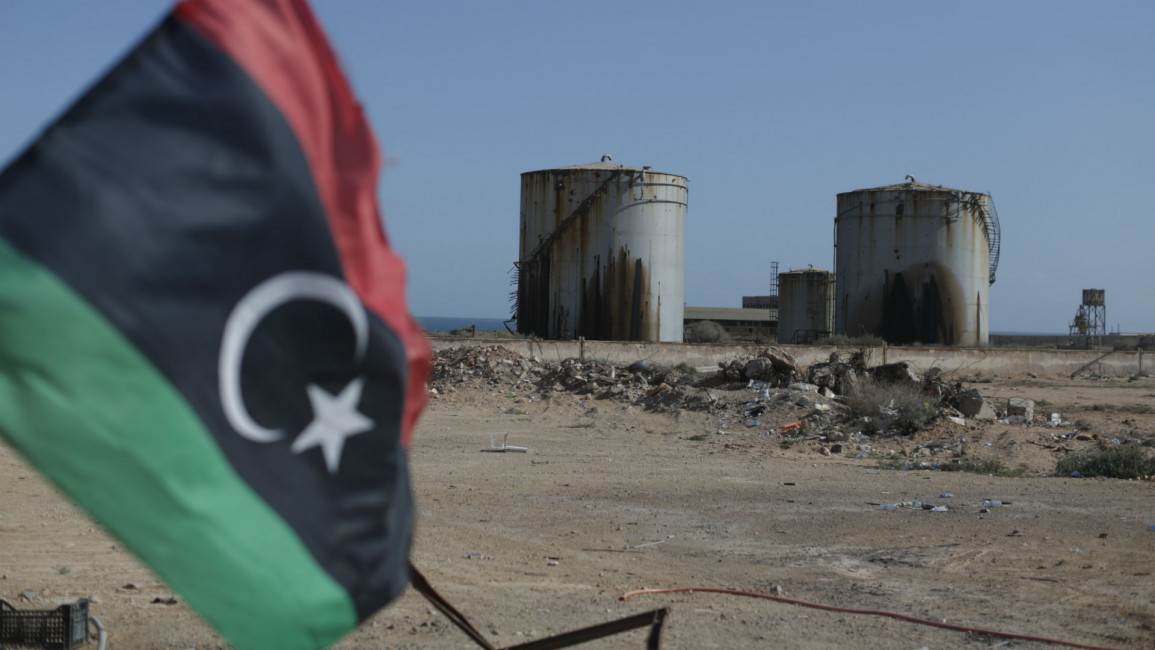Oil engineers freed in Libya after two-year abduction
Romanian Valentin-Laurentiu Puscasu and Libyan Ashraf Msallam were abducted along with two other Libyans by an armed group in a southern Libyan oil field in July 2018.
In a statement, the NOC welcomed their release though it did not provide further details about their kidnap or how they were freed.
The two other Libyans were released shortly after being snatched.
"I am very glad to see these men are safe and that their time in captivity has finally ended. The safety of employees and workers is a priority," said NOC chairman Mustafa Sanalla.
Read also: Libya frees over 450 inmates due to virus fears
"We must guarantee their security at all times."
Since the overthrow of former dictator Muammar Gaddafi in 2011, foreign workers and diplomats in Libya have been regularly targeted in kidnappings or attacks by militias or jihadist groups.
Prevailing insecurity has also rendered oil installations vulnerable to attack by rival factions or occupation by groups making extortionate demands.
Twitter Post
|
Libya has the largest oil reserves in Africa, and depends heavily on hydrocarbon exports to support its fragile economy.
Vital oil facilities were shut down by powerful tribal groups loyal to rogue Libyan general Khalifa Haftar in January. They also seized several large export terminals along Libya's eastern coast, as well as southern oil fields.
Last month, the top diplomat allied with Haftar said the shutdown of oil facilities would come to an end "when Libyans are guaranteed of the fair distribution of their resources".
This has caused losses of more than $1.85 billion, according to the country's oil corporation.
"These resources are protected by our government, and by its army," Abdelhadi Lahouij, foreign minister of the interim government told The Associated Press. "We pay the money for the police to guard the oil facilities, and protect the foreigners who are working in the oil facilities."
The closure of the oil facilities was seen as part of Haftar's efforts to capture Tripoli and punish his adversaries for making security and maritime agreements with Turkey, opening doors for unlimited military support from Ankara.
Libya's power struggle
In April 2019, Khalifa Haftar, a renegade military commander based out of eastern Libya, launched an assault on the capital, Tripoli, where the country's UN-recognised government was based.
According to the UN, hundreds of people have been killed and thousands more displaced in the conflict, which has been further complicated by foreign involvement.
Haftar's self-styled Libyan National Army (LNA) receives support from Egypt, Russia, Saudi Arabia and the UAE.
Read also: EXCLUSIVE: UN coronavirus relief chief Mark Lowcock appeals for immediate Middle East ceasefire
Turkey passed a controversial law in January to deploy troops to assist forces defending the Tripoli-based administration against Haftar's siege.
Earlier this month, the UN envoy for Libya resigned from his post citing "health reasons" after a challenging role trying to bring together the country's war parties ended with only a partial success.
His sudden resignation comes amid continued escalation in the country, and only days after he announced the collapse of a fragile ceasefire between Libya's two rival governing factions.
"For over two years, I have tried to reunited Libyans under one flag, restrain foreign interference… but for health reasons I can no longer manage this degree of stress," Salame wrote on Twitter.
According to diplomatic sources who spoke to The New Arab’s Arabic-languages sister site, Salame informed UN Security-General Antonio Gutierrez of his resignation shortly after publishing the post.
Stefanie Dujarri, a UN spokesperson, confirmed the development, commending Salame's efforts during his tenure.
Follow us on Facebook, Twitter and Instagram to stay connected



